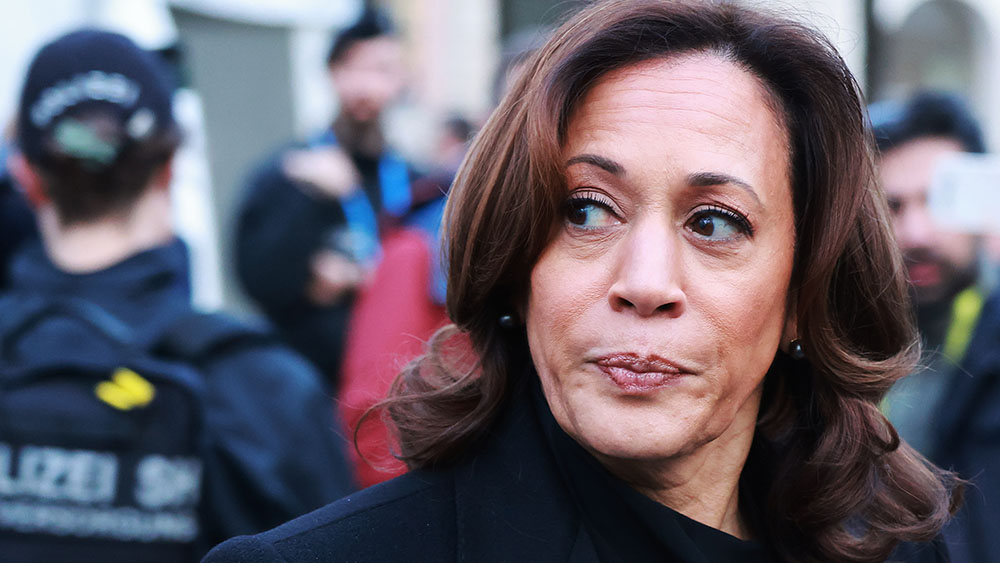GovTrack and media deletion of Harris’ record sparks transparency debates, allegations of censorship
GovTrack, a group famed for its thorough documentation of US congressional voting habits has purged a 2019 report that recognized Vice President Kamala Harris as the “most liberal” senator of that year.
(Article by Cindy Harper republished from ReclaimTheNet.org)
However, this comes as a surprise as the site, which categorizes itself as a beacon of governmental “transparency,” did in fact give Harris the label in 2019. It put her above even Senators Bernie Sanders and Elizabeth Warren during that period, a talking point favored by Republicans and one that President Donald Trump has recently used as a form of pejorative against Harris.
The website now displays a “Page Not Found” message whenever the link is accessed. Moreover, the Internet Archive illustrates that the webpage was yanked down sometime this month, the same month that Harris gained enough delegates to become the Democratic Party’s Presidential nominee after President Joe Biden’s announcement on July 21 of pulling the plug on his campaign and endorsing Harris.
Joshua Tauberer, the founder of GovTrack, explained the webpage removal to Fox News, as a consequence of the group’s policy shift enacted “several years ago.”
Despite this, Tauberer never disclosed an accurate date for the webpage removal. Interestingly, when probed about why the pages were not scraped off when the organization ended its annual report cards years ago, Tauberer’s rationale was that other influential parts of the work demanded his attention.
This move has sparked discussions and concerns among Harris’ detractors about censorship and the selective erasure of historical data that could serve as a form of manipulation when it’s used to undermine and gaslight criticism.
The deletion of this data has been a topic of discussion at the same time that there has been a rise of “fact-checks” from media outlets that Vice President Harris has never been what her critics and others refer to as a “border czar.”
Recent discussions in the media have focused on distancing Harris from the ongoing illegal immigration crisis, despite her being publicly named by President Joe Biden as a point person for aspects of the US southern border issue.
Media outlets (and particularly “fact checkers” which have considerable sway in how information is presented or censored on social media) have been vocal in their stance that Harris was not the “border czar.”
Fact checks from various publications, including CNN, Time Magazine, and USA Today, have emphasized that Harris’s responsibilities were targeted at addressing the root causes of migration from Latin American countries, rather than overseeing the border directly, using that as a reason to determine that it is false to call Harris a “border czar.”
CNN’s Dana Bash said that Harris’s appointment was to tackle the origins of migration issues, not to act as the border czar. Meanwhile, Time Magazine and USA Today reiterated that Harris’s focus was on international conditions prompting migration, rather than border control itself.
Like most “fact-checks,” this all comes down to semantics, with many claiming that it is “false” to suggest Harris held substantial responsibility for tackling the border crisis. Yet, also like most “fact-checks,” the power of this “false” rating can extend to how much a statement is allowed to be shared on social media, dampening down criticism.
President Biden made it clear in March 2021 that he had tasked Harris with leading efforts to manage migration flows.
He endorsed her qualifications for this role, stating, “I’ve asked her, the VP, today — because she’s the most qualified person to do it — to lead our efforts with Mexico and the Northern Triangle and the countries that help — are going to need help in stemming the movement of so many folks, stemming the migration to our southern border.” Harris, speaking at the same event, committed to enforcing immigration laws while recognizing the need for comprehensive border management.
The debate over Harris’s role gained further complexity when Axios revised a three-year-old article that had previously referred to Harris as the “border czar.”
As Harris steps into the role of the Democratic Party’s Presidential nominee, her past positions and the narratives around them are likely to be scrutinized and debated more intensely. As many seek to shape Harris’ image, there will likely be greater calls suggesting that it is essential that both the media and political institutions strive for transparency and accuracy in their reporting to ensure the public remains well-informed.
Read more at: ReclaimTheNet.org
Read full article here


